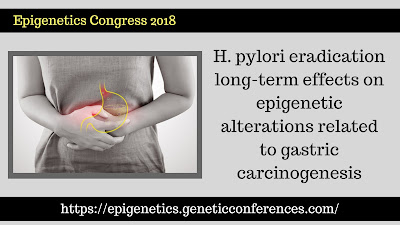H. pylori eradication long-term effects on epigenetic alterations related to gastric carcinogenesis
It has been
postulated that Helicobacter pylori (H. pylori) infection causes chronic
gastritis, comprised of atrophic gastritis, typically with intestinal
metaplasia (IM), dysplasia, and gastric cancer (GC). The stepwise nature of
this infection that typically continues over decades has been outlined as a
sequence of histological atomy events that confers an increased risk of
malignant transformation, as represented in Correa’s hypothesis. In Japan,
therefore, national insurance has covered eradication medical care in patients
with endoscopically diagnosed chronic gastritis caused by H. pylori infection
since 2013 to stop the event of GC. Similarly, the International Agency for
analysis on Cancer working group Report in 2014 suggested that each one country
explore the chance of introducing population-based H. pylori screening and
treatment programs as a method for GHz prevention.
In this study, the
long effects of H. pylori eradication on genetic and epigenetic molecular
alterations as well as dysregulation of miRNAs and monoclonal antibody (mAb)
Das-1, that is strongly related to GC22,25,33,34, were investigated in atrophic
mucosa (non-IM) and IM (pre-cancerous conditions) in patients with and while
not early rate (primary endpoints). The molecular markers connected to
carcinogenesis risk in such patients (secondary endpoints) were additionally
determined.




Comments
Post a Comment